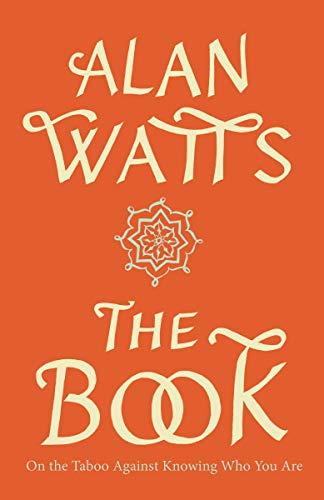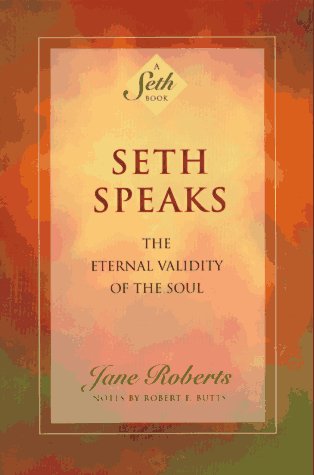Top products from r/pantheism
We found 25 product mentions on r/pantheism. We ranked the 22 resulting products by number of redditors who mentioned them. Here are the top 20.
1. The Book: On the Taboo Against Knowing Who You Are
Sentiment score: 1
Number of reviews: 4
Vintage Books
 Show Reddit reviews
Show Reddit reviews3. Deep Pantheism: Toward a New Transcendentalism
Sentiment score: 1
Number of reviews: 1
 Show Reddit reviews
Show Reddit reviews5. Facing the Dragon: Confronting Personal and Spiritual Grandiosity
Sentiment score: -1
Number of reviews: 1
 Show Reddit reviews
Show Reddit reviews6. Defending Middle-Earth: Tolkien: Myth and Modernity
Sentiment score: 1
Number of reviews: 1
 Show Reddit reviews
Show Reddit reviews7. Seth Speaks: The Eternal Validity of the Soul
Sentiment score: 0
Number of reviews: 1
Seth Speaks: The Eternal Validity of the Soul (A Seth Book)
 Show Reddit reviews
Show Reddit reviews8. The Nature of Personal Reality: Specific, Practical Techniques for Solving Everyday Problems and Enriching the Life You Know (Jane Roberts)
Sentiment score: 0
Number of reviews: 1
 Show Reddit reviews
Show Reddit reviews9. Kosmic Consciousness
Sentiment score: 1
Number of reviews: 1
Used Book in Good Condition
 Show Reddit reviews
Show Reddit reviews10. Jung and the New Age
Sentiment score: -1
Number of reviews: 1
Used Book in Good Condition
 Show Reddit reviews
Show Reddit reviews11. I Am You: The Metaphysical Foundations for Global Ethics (Synthese Library)
Sentiment score: 1
Number of reviews: 1
 Show Reddit reviews
Show Reddit reviews12. My View of the World
Sentiment score: 1
Number of reviews: 1
Used Book in Good Condition
 Show Reddit reviews
Show Reddit reviews14. Weapons of Mass Instruction: A Schoolteacher's Journey Through the Dark World of Compulsory Schooling
Sentiment score: 0
Number of reviews: 1
New Society Publishers
 Show Reddit reviews
Show Reddit reviews15. In Whom We Live and Move and Have Our Being: Panentheistic Reflections on God's Presence in a Scientific World
Sentiment score: 1
Number of reviews: 1
Used Book in Good Condition
 Show Reddit reviews
Show Reddit reviews16. What the Buddha Taught: Revised and Expanded Edition with Texts from Suttas and Dhammapada
Sentiment score: 1
Number of reviews: 1
 Show Reddit reviews
Show Reddit reviews17. Tillich: A Guide for the Perplexed (Guides for the Perplexed)
Sentiment score: 1
Number of reviews: 1
Used Book in Good Condition
 Show Reddit reviews
Show Reddit reviews18. Pantheism: A Non-Theistic Concept of Deity
Sentiment score: 1
Number of reviews: 1
 Show Reddit reviews
Show Reddit reviews




> So I'm actually writing a book that contains a chapter on pantheism. Can you point me towards the sources that include those quotes about open individualism or other porminent pantheist sources you think I should know about? But I do love that open individualism thing and I agree that it is inherently an idea of spiritual connection. I'll look more into that.
Well, here's his book. And another book that's super expensive and so i don't own but which is the main textbook for open individualism. Schrodinger's book is pretty good though, even though he admits tat his book is more of an explanation than an argument. And then the third link is a link to schopenhauer's works, edited by the person who made the main open individualism textbook. Schopenhauer was apparently an open individualist too.
http://www.amazon.com/gp/product/0918024307?keywords=schrodinger&qid=1450233393&ref_=sr_1_3&sr=8-3
http://www.amazon.com/Am-You-Metaphysical-Foundations-Synthese/dp/1402029993/ref=sr_1_1?ie=UTF8&qid=1454939417&sr=8-1&keywords=I+Am+You%3A+The+Metaphysical+Foundations+for+Global+Ethics
http://www.amazon.com/s/ref=nb_sb_noss?url=search-alias%3Dstripbooks&field-keywords=kolak+world+will
And if you want other good books here's the best process theism book and an encycopedia page that sums up some of its basic themes.
http://www.iep.utm.edu/processp/
http://www.amazon.com/Divine-Relativity-Social-Conception-Lectures/dp/0300028806/ref=sr_1_1?ie=UTF8&qid=1457655151&sr=8-1&keywords=a+social+conception+of+god
And if you want another slightly different book there's paul tillich's book. Which is basically a christian pantheism. Though the system isn't inherently christian. But it shows you how he made it christian. Since it involves symbols to make sense of things you necessarily can only use symbols for.
http://www.amazon.com/Tillich-Guide-Perplexed-Guides/dp/0567032914/ref=sr_1_1?ie=UTF8&qid=1457598040&sr=8-1&keywords=Tillich%3A+A+Guide+for+the+Perplexed
And here's a book by fechner, who while he did mention pantheism a bit its more about life and death and identity. But still definitely worth reading. He's considered the anti-schopenhauer, since he has a super positive mentality, whereas Schopenhauer was super depressed.
http://www.amazon.com/little-book-life-after-death-ebook/dp/B00N52L19Y/ref=sr_1_1?ie=UTF8&qid=1454362314&sr=8-1&keywords=fechner+life+death#reader_B00N52L19Y
And one more. A book I haven't read, but its an anthology from a lot of the big names.
http://www.amazon.com/Whom-Live-Move-Have-Being/dp/0802809782/ref=sr_1_6?s=books&ie=UTF8&qid=1454026430&sr=1-6&keywords=panentheism
panpsychism is also useful. This book details how prevalent it was in history up to modern day.
http://www.amazon.com/gp/product/0262693518/ref=ox_sc_act_title_1?ie=UTF8&psc=1&smid=A1PA5HM0MRCFT0
And this last paper isn't necessarily pantheist per say, but its related, being about group minds.
http://www.faculty.ucr.edu/~eschwitz/SchwitzPapers/USAconscious-140721.htm
>I would say that sentience isn't a requirement for meaningful god concepts,
Well, I'd say so too, but it helps to have something more coherent to express to people. I was just giving an example that helps explain to skeptics why you're not just using the word god haphazardly.
> but isn't that reasoning that I see popular on this sub especially a fallacy of composition? Or are you just saying "there exists some consciousness in the Universe"? The implication can be taken the wrong way if you aren't that specific.
The point here isn't that this makes it analogous to a person. That's why I said you need to stress that it doesn't mean its independently sentient. But that if there's no metaphysical barriers between people, then the primary "identity" "is" the social organism of the individual discrete egoes that exist in it. I mean... I'm bad at explaining. That's kind of vague. But it makes sense when you compare open individualism to closed individualism. And in fact, schrodinger went a step further than this even. He implied that the consciousness was necessarily a type of unity that was divided in the same way a crystal reflects one thing into a lot of images. And so while you're not talking about an independently sentient entity, you are arguing that consciousness in reality has a level of unity. (He may have also been a panpsychist, but he doesn't explicitly say.) Since everything is connected, not in a meaningless way, but in a tangible albeit abstract way.
I guess a good example, would be like imagine if you physically had one neuron that transferred information between your and someone else's brain. There are twins conjoined at the head who can actually read eachother's thoughts. So overlap of identity obviously exists in some sense. Here its saying that all identity exists within the same global identity. There's no barriers, but its obviously far apart enough that you aren't directly experiencing as you what goes on in someone else's brain.
Sorry I didn't get this written out earlier. It's really hard for me to put my faith into words, so I'm going to attempt to define this as best I can by using the help of Wikipedia (because it breaks things down easier than I can!).
If you look at the Wikipedia article for theism (first paragraph):
>In a more specific sense, theism can be a doctrine concerning the nature of a monotheistic God and God's relationship to the universe. Theism, in this specific sense, conceives of God as personal, present and active in the governance and organization of the world and the universe.
I can't quite grasp the Christian concept of theism either, but it's my understanding that the deity (God) is a entity of its own. This deity is worshiped as the over-ruler of the universe, and as the entitity responsible for how the universe works. The relationship between a believer and the deity would then be almost of a devote follower. A friend, even, where at whichever time you can conduct a conversation with the deity.
If you take the similar concept into pantheism, the deity is composed of everything, or like I believe, of energy. This everything isn't any different than you or me, but we see the physical/psychological differences clearly. The relationship between a believer and the deity is a relationship of existance. I can't exist without the atoms in the air, and the air can't exist without the cycle of atoms going in and out of existing bodies. Together we're all one in the same.
I'm not sure if this answered your question. But the main aspect of theism that I see in pantheism is that relationship of who and what we are. Worship is as simple as living, and in theory I could worship by practicing yoga. Or, I could be more Wicca inclined and practice sage burning. How we live life though is a different matter, and doesn't always have a lot to do with our beliefs or who/what we think created us.
*Edit. I want to add that pantheism is so differently translated, especially in terms of a deity, by everyone. Pantheism: A Non-Theistic Concept of Deity by Michael P. Levine (super long book!) can possibly help you more than my explanation.
Just finished reading The Book myself. What an awesome read! Whenever I read I like to highlight passages I want to revisit later. Pretty sure more than 50% of my copy is highlighted :)
Out of your mind shares a first place position with Kosmic Consciousness for best audio philosophy material I've come across.
Seriously though, I've listened to Out of Your Mind upwards of 10 times by now, certain discs many times more. It's amazing.
Ha, there is certainly an argument for that! I've been reading Buddhist books lately, you might find that linked one an interesting read. The Buddha said that free will is an illusion because all karmic actions are influenced by dukkha (loosely, suffering) - an enlightened one acts without karma/influence because they act from knowledge of Reality instead of the common constructed assumptions about reality.
oh dear, thanks broman.
I saw another academic book, it was like $50 and published in 2015, so I went for this other recommended product
Great book that touches on such concerns: Defending Middle Earth
Hawking is a wonderful direction to go
The Illustrated "A Brief History of Time" and "The Universe in a Nutshell" https://www.amazon.com/dp/0307291227/ref=cm_sw_r_cp_apa_i_d5m3Cb47NHXQC
pantheist basics right there.
Also by Alan Watts: The Book
The book isn't explicitly about pantheism but it is about our perceptions of life and the universe and discusses many themes that pantheism shares.
I didn't really get the bit about water and words. Could anyone explain it?
Here's that placebo effect video they briefly showed bits of. It's really well done.
Also, that piece on education made me think of the book Weapons of Mass Instruction.
I didn't see it, but from what I can tell, Pay it Forward as well.
https://www.amazon.com/Book-Taboo-Against-Knowing-Who/dp/0679723005/ref=sr_1_3?ie=UTF8&qid=1480780089&sr=8-3&keywords=the+book
I read The Book by Alan Watts
I Am That by Sri Nisargadatta Maharaj
http://www.amazon.com/I-Am-That-Nisargadatta-Maharaj/dp/0893860468/ref=sr_1_1?ie=UTF8&qid=1371198892&sr=8-1&keywords=i+am+that
You might find the Seth Books interesting.
Seth Speaks
The Nature of Personal Reality
It's not easy reading but for me these books explained the nuts and bolts of reality, consciousness, how and why we are here, etc.
Why are you trying to identify with the planet?
The "I" or "ego" (the German word for "I") is specifically the thing that does not feel like a part of other things—it is the part of us which feels like an isolated observer (or 'eye'). So there is no way this part of you will ever feel equivalent with the planet, except through illusion. The truth is that the 'I' is the alienated part of us. The book Jung and the New Age by David Tacey expands on this perspective, taking the Jungian approach of putting "god(s)" "out there". Another book about identification with the divine, and the problems this often causes, is Facing the Dragon by Robert Moore.
There are methods to dissolve the edges of the ego (the "barrier" you refer to, I think), but these methods are either slow (years) or dangerous.
Is this what you are asking about? Methods of ego-dissolution?